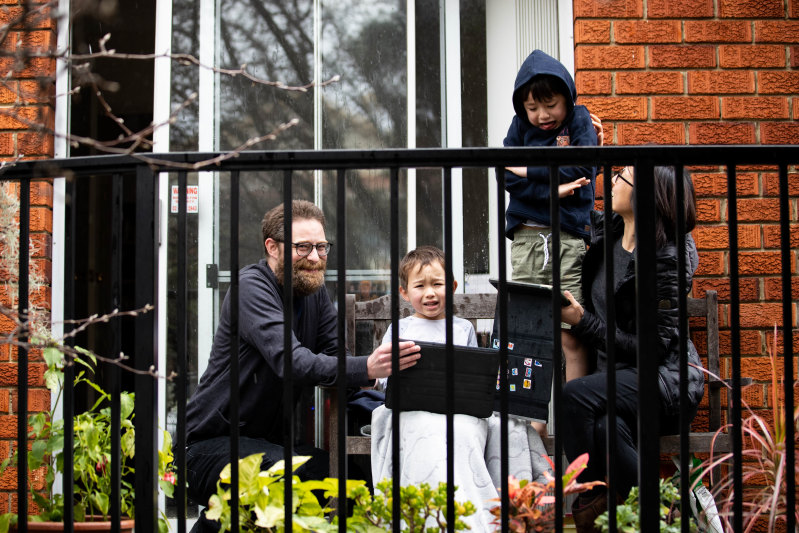Right after a Herald photographer arrived to photograph our family for a story on home-schooling, the heavens threatened to pour. I’d already been briefed on COVID-safe procedure: the photographer would shoot from outside our apartment. The balcony was our only shot but the rain was going to ruin the photo op.
I knew the current restrictions but found myself asking: did she want to come in to take the photo? The rationalisations were at the ready: she’d come all this way, we’d keep our distance, it’d just be a minute. At least the photographer followed the rules. I was prepared to bend them.

Perhaps this is why we’re struggling to suppress the current Delta outbreak. Like me, plenty have been blasé about the rules, and often for far worthier reasons. “He’s lonely, we’ll just pop in.” “That’s too much to carry. I’ll give you a lift.” That’s before we get to the hard choice facing casual workers: stay home or get paid.
Granted, the regulations have been somewhat hazy and Premier Gladys Berejiklian has mostly favoured a gospel of self-responsibility – rallying us to do the right thing. But it’s too easy to make our individual circumstances the exception to the rule. Whatever our political views, we believe we’re free to do what we want so long as we don’t hurt others. This assumes we can predict the consequences of our actions. Even those we don’t intend.
Who knows if those removalists who ferried COVID into regional NSW also passed the virus on to their mother – now deceased? In any case, her tragic death was just as unintended as every other COVID death.
While it’s easy to blame obvious rule-breakers, let’s not overlook our own interpretations of current restrictions, whether well-intentioned or self-interested. Even if our indiscretions never attract the glare of the national spotlight.
In their book Connected, Nicholas Christakis and James Fowler grapple with the huge influence we have on our communities. Apparently, we sway each other’s happiness, voting patterns, even our weight. But we don’t just catch each other’s habits. Connected may pre-date the pandemic, but its studies of network “contagion” seem especially grim amid this highly contagious variant.
The pandemic reveals the welfare of others – even unknown others – is a necessary limit on our freedom.
Lockdown reminds us that we’re all players in a moral drama and watching the consequences of our actions, intended or not, unfold in real time. Love your neighbour, Jesus said. You don’t have to be Christian to see the wisdom of his words. The pandemic reveals the welfare of others – even unknown others – is a necessary limit on our freedom.
I need to learn this as much as anyone else. But lockdown means I’m not going anywhere. There’ll be plenty of time for the lesson to sink in.
Justine Toh is senior fellow at the Centre for Public Christianity.
This article first appeared in The Sydney Morning Herald.